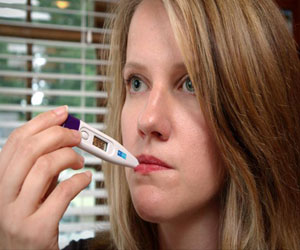In fruit flies scientists have discovered an association between sleep and immune system response. The findings are published in Sleep .

In the first paper, they took a conventional approach by subjecting fruit flies to sleep deprivation before infecting them with either Serratia marcescens or Pseudomonas aeruginosa bacteria. Both the sleep-deprived flies and a non-sleep-deprived control group displayed increased sleep after infection, what the experimenters call an "acute sleep response."
Unexpectedly, the pre-infection, sleep-deprived flies had a better survival rate. "To our surprise they actually survived longer after the infection than the ones who were not sleep-deprived," notes Williams. The Penn team found that prior sleep deprivation made the flies sleep for a longer period after infection as compared to the undisturbed controls. They slept longer and they lived longer during the infection. Inducing sleep deprivation after infection rather than before made little difference, as long as the infected flies then got adequate recovery sleep. "We deprived flies of sleep after infection with the idea that if we blocked this sleep, things would get worse in terms of survival," Williams explains. "Instead they got better, but not until after they had experienced more sleep."
Sleep deprivation increases activity of an NFkB transcription factor, Relish, which is also needed for fighting infection. Flies without the Relish gene do not experience an acute sleep response and very quickly succumb to infection. But, when these mutants are sleep-deprived before infection, they displayed increased sleep and survival rates after infection. The team then evaluated mutant flies that lacked two varieties of NFkB (Relish and Dif). When flies lacked both types of NFkB genes, sleep deprivation had no effect on the acute sleep response, and the effect on survival was abolished. Flies from both sleep-deprived and undisturbed groups succumbed to infection at equal rates within hours.
"Taken together, all of these data support the idea that post-infection sleep helps to improve survival," Williams says.
In the second study, the researchers manipulated sleep through a genetic approach. They used the drug RU486 to induce expression of ion channels to alter neuronal activity in the mushroom body of the fly brain, and thereby regulate sleep patterns. Compared to a control group, flies that were induced to sleep more, and for longer periods of time for up to two days before infection, showed substantially greater survival rates. The flies with more sleep also showed faster and more efficient rates of clearing the bacteria from their bodies. "Again, increased sleep somehow helps to facilitate the immune response by increasing resistance to infection and survival after infection," notes Williams.
"These studies provide new evidence of the direct and functional effects of sleep on immune response and of the underlying mechanisms at work. The take-home message from these papers is that when you get sick, you should sleep as much as you can -- we now have the data that supports this idea," she concludes.
 MEDINDIA
MEDINDIA




 Email
Email










